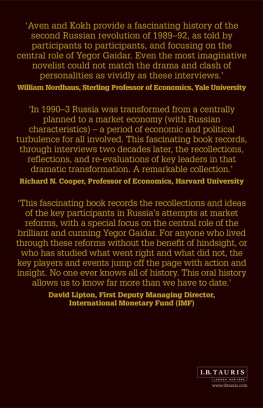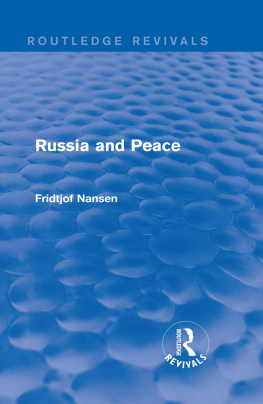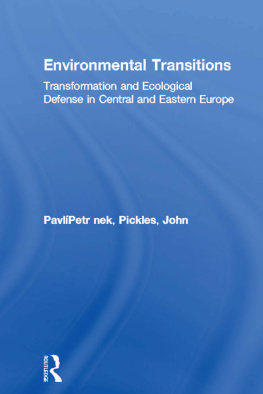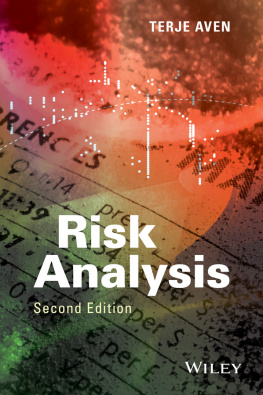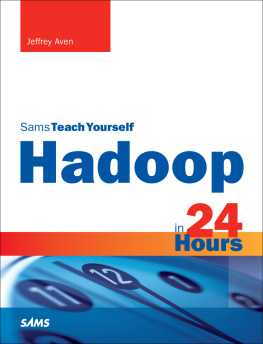A fter the collapse of the Soviet Union, a team of young economic reformers led by Yegor Gaidar worked to create a new economic future for Russia. Against an overwhelming threat of looming hunger and civil war, they created a market economy which is still in place today. In the face of crisis, a process of shock therapy involving the end of price regulation, the introduction of privatization and a reduction in public spending appeared necessary. Their plans have been the subject of controversy ever since the path to the new economy was not smooth and Russia continued to struggle with economic crises throughout the 1990s. Yet Gaidars plans have been widely praised for saving the country from complete collapse.
For the fi rst time in this book, the participants in the process reveal their experiences during those frantic days, their insights into Yegor Gaidar and of the formation of post-Soviet Russia. In doing so, Gaidars Revolution provides a unique perspective on contemporary Russia, making it an indispensable resource for understanding its economic and political complexities.
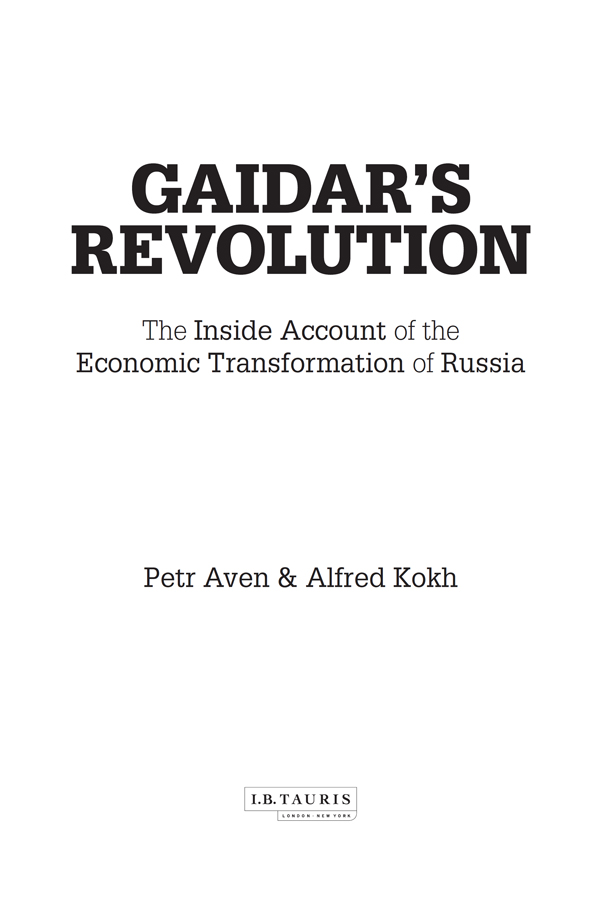
New edition published in 2015 by
I.B.Tauris & Co. Ltd
London New York
www.ibtauris.com
First Published in the United States in 2013 by The Gaidar Foundation
Copyright 2013 Petr Aven & Alfred Kokh
Translation Copyright 2013 Petr Aven & Alfred Kokh
All rights reserved. Except for brief quotations in a review, this book, or any part thereof, may not be reproduced, stored in or introduced into a retrieval system, or transmitted, in any form or by any means, electronic, mechanical, photocopying, recording or otherwise, without the prior written permission of the publisher.
ISBN: 978 1 78453 122 5
eISBN: 978 0 85773 958 2
A full CIP record for this book is available from the British Library
A full CIP record is available from the Library of Congress
Library of Congress Catalog Card Number: available
Typeset in Adobe Garamond Pro by A. & D. Worthington, Newmarket, Suffolk
Petr Aven is a Russian banker and economist who served as Minister of Foreign Economic Relations for the Russian Federation (19912). He holds a PhD in Economics from Moscow State University and is now Chairman of the Board of Directors of Alfa Bank, Russias largest commercial bank. He is a trustee of the Centre for Economic Policy Research and a member of the Board of Directors of the New Economic School in Moscow.
Alfred Kokh is a writer and economist who was a Deputy Prime Minister of the Russian Federation in the 1990s and a chief architect of Russias privatization. He holds a PhD in Economics from the St Petersburg Mathematics and Economics Institute of the Russian Academy of Sciences and is the author of A Crate of Vodka: An Insider View on the 20 Years That Shaped Modern Russia and The Selling of the Soviet Empire: Politics and Economics of Russias Privatization .
Aven and Kokh provide a fascinating history of the second Russian revolution of 198992, as told by participants to participants, and focusing on the central role of Yegor Gaidar. Even the most imaginative novelist could not match the drama and clash of personalities as vividly as these interviews.
William Nordhaus, Sterling Professor of Economics, Yale University
In 19903 Russia was transformed from a centrally planned to a market economy (with Russian characteristics) a period of economic and political turbulence for all involved. This fascinating book records, through interviews two decades later, the recollections, reflections, and re-evaluations of key leaders in that dramatic transformation. A remarkable collection.
Richard N. Cooper, Professor of Economics, Harvard University
This fascinating book records the recollections and ideas of the key participants in Russias attempts at market reforms, with a special focus on the central role of the brilliant and cunning Yegor Gaidar. For anyone who lived through these reforms without the benefit of hindsight, or who has studied what went right and what did not, the key players and events jump off the page with action and insight. No one ever knows all of history. This oral history allows us to know far more than we have to date.
David Lipton, First Deputy Managing Director, International Monetary Fund (IMF)
CONTENTS
ILLUSTRATIONS
Yegor Gaidar, Moscow, 1993. ( Lev Melikhov / The Gaidar Foundation) |
President Boris Yeltsin and Yegor Gaidar in Moscow, March 28, 1993. ( Igor Mikhalev. RIA Novosti) |
The last picture in the office of the prime minister. Gaidar and his advisers in December 1992. ( The Gaidar Foundation) |
Yegor Gaidar in the office of the Institute for the Economy in Transition, 1993. ( The Gaidar Foundation) |
Sergei Filatov, Yegor Gaidar, Ruslan Khasbulatov, Boris Yeltsin, and Yuri Yarov at the Congress of Peoples Deputies of the Supreme Council in the Kremlin. ( Valery Kivel / Kommersant) |
First Deputy Prime Minister of Russia Yegor Gaidar at a meeting of the Supreme Council of Russia, March 1992. ( Valery Kivel / Kommersant) |
Boris Yeltsin and members of the Presidential Administration of Russia, 1994. ( ITARTASS) |
Rally in support of Boris Yeltsin in Moscow, March 1993. ( The Gaidar Foundation) |
Rally in support of Boris Yeltsin and Yegor Gaidar in Moscow. (Archive ITARTASS) |
Director of the Institute for the Economy in Transition, Yegor Gaidar, at a press conference on March 19, 1997. ( Alexander Dryaev / Kommersant) |
Russian Deputy Prime Minister Alexander Shokhin, 1992. ( Valentin Kuzmin / ITARTASS) |
Boris Fyodorov, Anatoly Chubais, Alexander Shokhin, and Vladimir Shumeiko at the IX Extraordinary Congress of Peoples Deputies of Russia, 1993. ( Alexander Sentsov / ITARTASS) |
Burbulis was the founding father of the Government Reform, 1992. ( Alexander Chumichev / ITARTASS) |
We all came from science, Alexander Shokhin, the Academician Stanislav Shatalin, Gennady Burbulis, and Yegor Gaidar, 1992. ( Photo from the personal archive of Alexander Shokhin) |
Alexander Shokhin, Edward Dnieper, Tatiana Shokhin, and Mikhail Poltoranin at Alexanders dacha in Arkhangelskoye. ( Photo from the personal archive of Alexander Shokhin) |
Yegor Gaidar, Petr Aven, and Alexander Shokhin at his dacha in Arkhangelskoye, 1992. ( Photo from the personal archive of Petr Aven) |
Negotiations on external debt. Horst Koehler (Deputy Minister of Finance, 1992, and President of Germany, 200410), Petr Aven, Alexander Shokhin, and Boris Yeltsin, 1992. ( Photo from the personal archive of Petr Aven) |
Minister of Foreign Economic Relations Petr Aven, 1992. ( Yuri Abramochkin / RIA Novosti) |
Press conference of First Deputy Prime Minister Yegor Gaidar, 1992. ( Alexander Chumichev / ITARTASS) |
Yegor Gaidar and Andrei Nechayev, December 1, 1992. ( Alexander Makarov / RIA Novosti) |
First Deputy Minister of Economy and Finance Minister Andrei Nechayev, 1991. ( Valentin Cheredintsev / ITARTASS) |
Chairman of the Russian State Committee for State Property Management, Anatoly Chubais, during a press conference at the White House regarding privatization. ( Sergey Nikolaev / Kommersant) |

